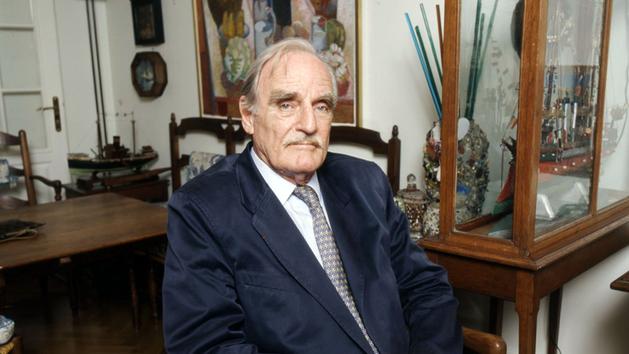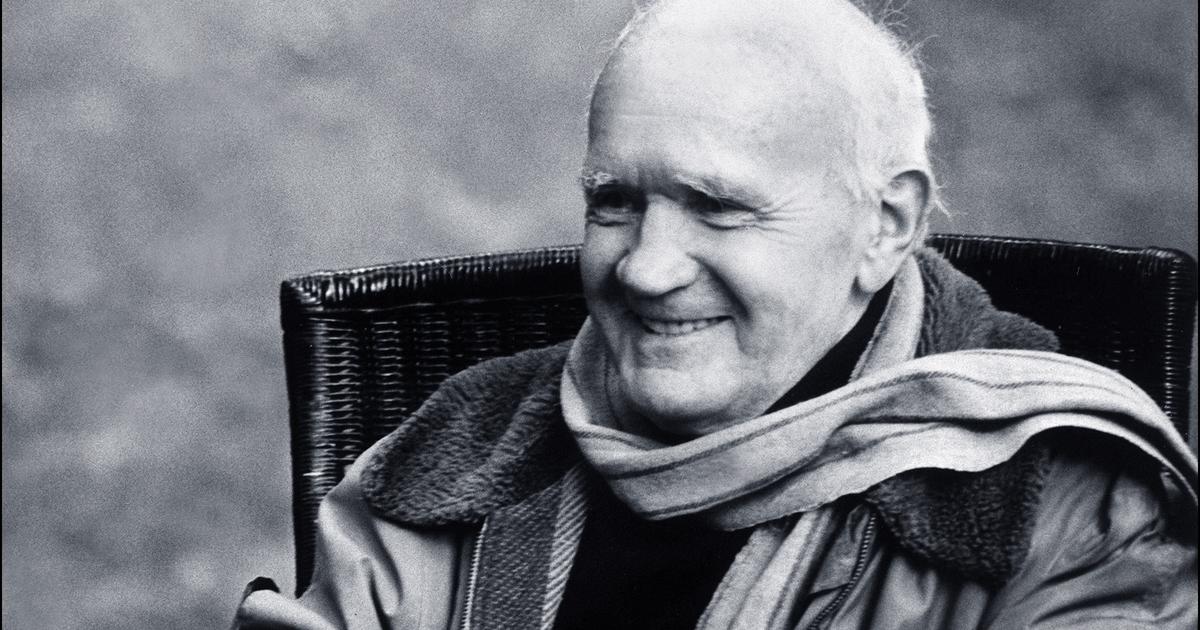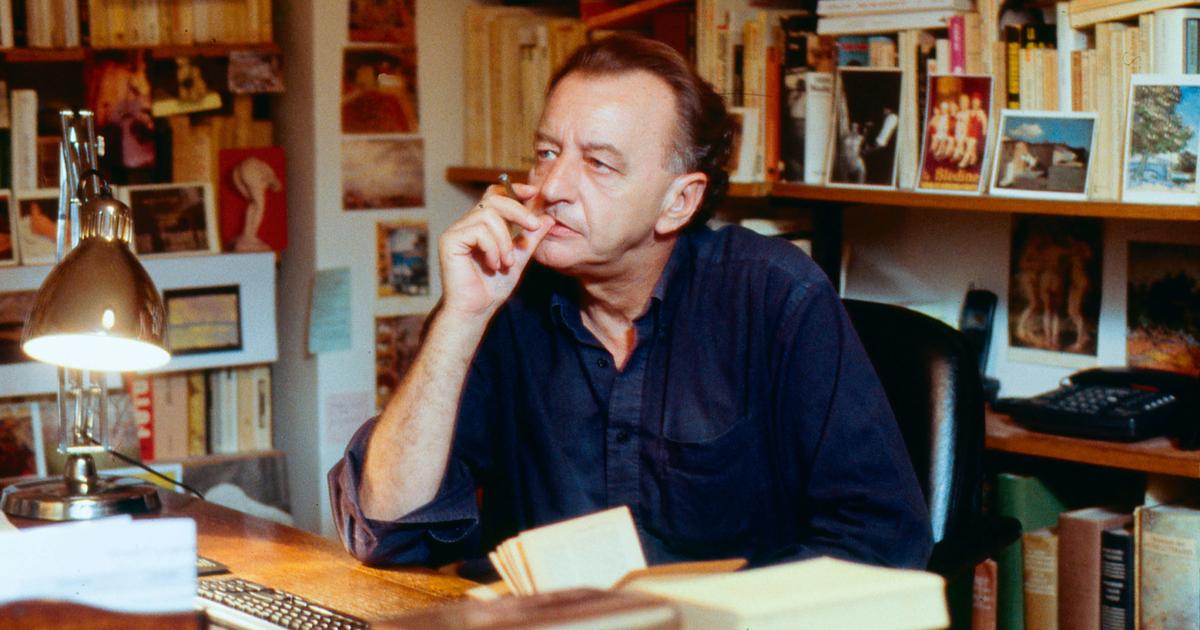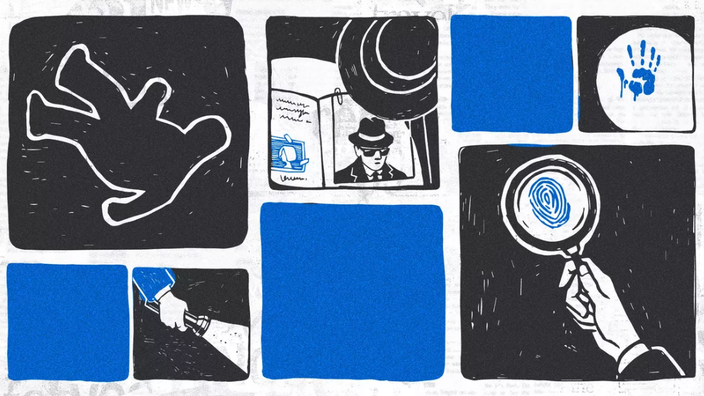The Patagonian Consul General is no longer. Writer, explorer, adventurer, poet ... Jean Raspail left his mark on 20th century French literature. Before being an adventurer of words, the man traveled through isolated lands. Thick mustache, bushy eyebrows, face cut with a knife, Jean Raspail was an obstinate being, proud of his positions, assuming with his deep blue eyes his Catholic faith and his attachment to the monarchy. A royalist ecologist, utopian and adventurer. Jean Raspail was a romantic.
Considering the inner paths of life, it was there that I was born, at the age of twenty-three years and nine months, on an icy spring morning in the year 1949.
Jean Raspail, "The Blue Island"Born on July 5, 1925 in Chemillé-sur-Dême in Indre-et-Loire, Jean Raspail is a child of the bourgeoisie. Descendant of François Vincent Raspail (who gave his name to the Boulevard) who re-established universal suffrage in 1848. His father was president of the Grands Moulins de Corbeil and director general of the Saarland mines. However, despite private schools and a strict education, the young Raspail has desires elsewhere. Too young to join the Resistance, he had to wait until 1949 to set sail. " To consider the inner paths of life, it was there that I was born, at the age of twenty-three years and nine months, on an icy spring morning in the year 1949, " he wrote. in Blue Island (Robert Laffont, 1990).
Jean Raspail, winner of the grand prize for the novel of the French Academy for his book “Pour moi Antoine de Tounens” in 1981. Rue des Archives / © Rue des Archives / AGIP
The 23-year-old moon fisherman then leaves his world of comfort for adventure. A team of young people who heralded 30 years of traveling around the globe, to endangered peoples and to the confines of hostile lands. He put his bag in Tierra del Fuego, the Antilles, Alaska, on the shore of Lake Titicaca or even in Macao and brought back guides and stories. Adventurer of words and isolated lands, his first books are reports. His first real novel, Le Vent des pins , was released by Juillard in 1958. Story written after a trip to Japan. From these adventures, Raspail drew a quasi-biography, a monument. Me, Antoine de Tounens, king of Patagonia , (Albin Michel, grand prize for the novel of the Academy in 1981). The story of a young man from Tourtoirac set off, around 1860, to conquer distant Patagonia. Raspail had fun and proclaimed himself Consul General of Patagonia. Readers write to ask him to be naturalized patagonians, they want to share this state of mind. The myth was born.
The Sulfur Camp of Saints
Raspail writes to escape. Defender of lost causes, he published in 1986 , Qui remembes des hommes, following his stays with the Alacalufs, a people in the Land of Fire annihilated and threatened with extinction by progress. His work seduces with his strength, his obstinacy, and wins new readers with each generation. It also divides. In 1973, the writer published what would become a hot-shoe: Le Camp des Saints (Robert Laffont). Apocalyptic novel in France in 2050, faced with the massive arrival of migrants on its coasts. Prophet? He denied it. Controversies proliferated.
Read also: "Today," The Camp of Saints "could be sued for 87 reasons"
In 2011, the book was reissued. The author adds a punch preface, entitled "Big Other". In this same reissue, he adds as an appendix all the pages falling under the scope of the law. Robert Laffont's CEO, Leonello Brandolini, then specifies in a foreword that his opinion is not that of the author he publishes. The author is associated with the extreme right, his remarks are denounced. Daniel Schneidermann will sign a vitriolic tribune against the author with the title: "Call racists racists". Readers decided: 132,000 copies sold to date.
After The Camp of the Saints , the man will publish about twenty works, much less controversial. The utopian soul of the traveler had taken over. He returned to his travels to meet forgotten peoples. A fertile romantic imagination hailed in 2003 by the Grand Prize for Literature of the French Academy for all of his work. Ironic for the one who had the feeling of never having had "the card" near the literary medium. Even the 9th art has drawn its emaciated features and its eternal mustache. The designer Jacques Terpant adapts his adventure novels. The author of Moi, Antoine de Tounens, King of Patagonia even makes an appearance in the 19th Tome of the adventures of the famous billionaire Largo Winch. The designer, impressed by his so British physique , borrowed his features for a character.
The monarchy at the heart
The lily. Raspail proudly wore it on his ties. His work was just as covered. The famous Sire (1991) (which narrates the coronation of Philippe Pharamond de Bourbon in 1999), Le Jeu du roi (1976), The King beyond the sea (2000), nurtured this love for the monarchy. Deeply Christian, the man held on to his convictions. In his apartment, the works of the Vendée wars recalled his royalist attachment. On January 21, 1993, he organized against all odds a commemoration of the 200 years of the death of Louis XVI, place de la Concorde, in the presence of the American ambassador Walter Curley. In 1971, Raspail published the Game of the King , a novel in which he evoked a man dreaming of his vanished kingdom while looking at the sea. Braving the storms, the writer stayed the course, continued to say and write what he believed in. , without bending. The Patagonian consul is dead, long live the consul!
3 books by Jean Raspail to have read:
• Me, Antoine de Tounens, king of Patagonia, Albin Michel, 1981
• The Camp of Saints, Robert Laffont, 1973
• Who remembers men ..., Robert Laffont, 1986









/cloudfront-eu-central-1.images.arcpublishing.com/prisa/NVE5H33XCJD3LHCX3HJTNFL5WY.jpg)